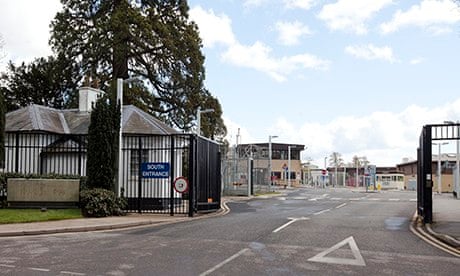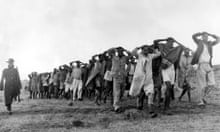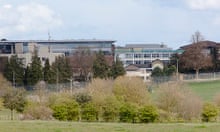On a hot day in late July, the Foreign and Commonwealth Office published quietly on its website an admission that it holds an archive of 1.2m files, most of them "special collections", which should have been transferred to the National Archives. The "top-level inventory" reveals that these include files going back, at least, to the treaty of Paris of 1856, which ended the Crimean war, with kilometres of shelves of documents kept secret at Hanslope Park at the discretion of the lord chancellor. Only one journalist bothered to report the story, while few historians – and fewer citizens – have considered its explosive implications.
In May 2013, Christine Ferguson, the FCO's records officer, had first hinted of their existence, but had implied they were trivial "odd collections of material", and the FCO had then estimated only 250,000 "special" files. Perhaps her airy way of describing this vast archive, withheld in breach of the spirit of the Public Record Act of 1958, had something to do with embarrassment. As recently as April 2011 the FCO had been compelled to "discover" that it held over 8,000 colonial files, including the records of human rights abuses in Kenya and elsewhere. The 2013 revelations dwarf these releases and challenge the FCO's narrative of openness.
That the FCO sat on 150 times as many other files undermines any confidence that the documents it has sent over decades to the National Archives represent a full and accurate record of Britain's foreign or colonial affairs. It supports the suspicions of many historians that the 2011 disclosure represented only a selection of the colonial materials held at Hanslope.
For decades, historians of diplomacy and empire have spoken of the "official mind", and have assumed it was possible through diligent work in the Public Record Office to know the "truth" of how policy was made. What do we do now that we know officials have had such an extraordinary power to sculpt the archival trace? It seems likely that no one individual even knows what this Babel of documents actually contains. These collections have the potential to force historians to revise their explanations of such major diplomatic questions as the partition of Africa, and the origins of the first and second world wars.
This is a civic and not just a historical question. Public archives are instruments through which democracies recognise their citizens' ownership of, and responsibility for, government. All governments need some measure of secrecy, but there can be no justification for not releasing, in full, government records that are over 50 years old in full. The practice of full release acts as a brake on abuses of power. The hand of the present is kept honest by the gaze of the future.
At the moment, however, we seem to move in exactly the opposite direction. The archival practices of the British government seem partly animated by a desire to protect the reputations of the dead. More accurately, though, what is being protected are the sensitivities of the living. For the root of these practices of secrecy appears to be a perverse kind of historical narcissism, a desire for a Whiggish gaze into an unblemished national past that leads to our time. It is time to grow up: no British person alive should feel pride or guilt about events that happened before they were born.
Parliament should rethink the Public Record Act, and not merely in the national interest. The older a document, the less it belongs to those who make it or keep it, and the more it is the property of humanity in general. These "special collections" belong neither to the FCO nor even to the British people. They record how the modern world was made, and people around the world deserve access to them and to the truth.



